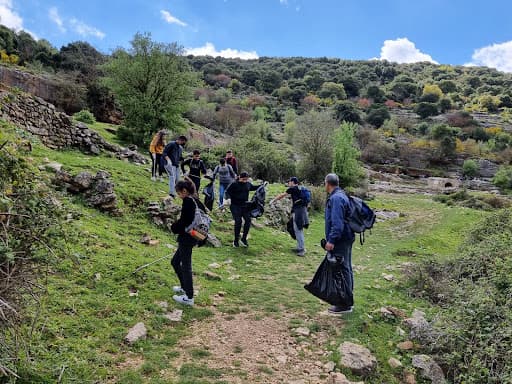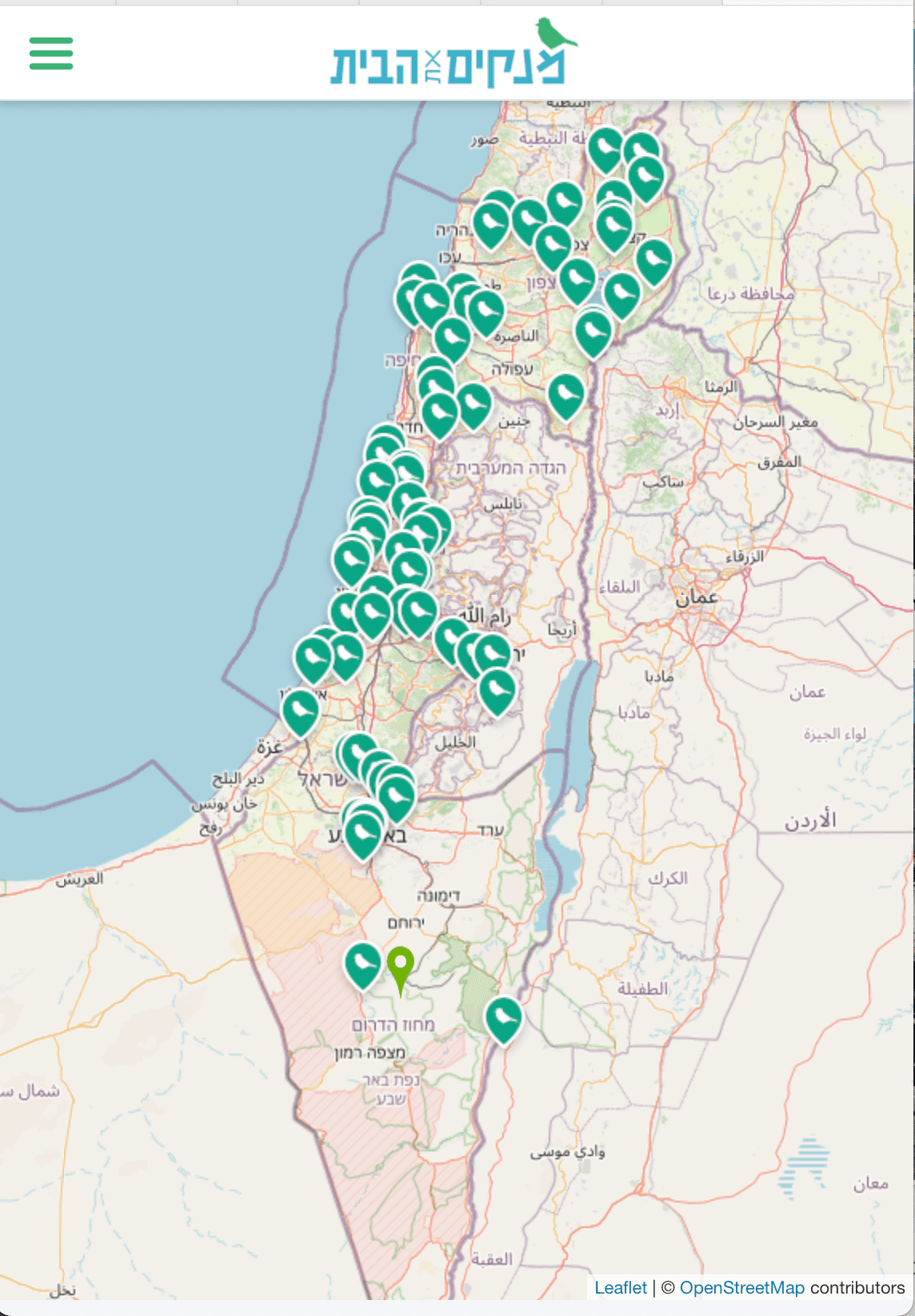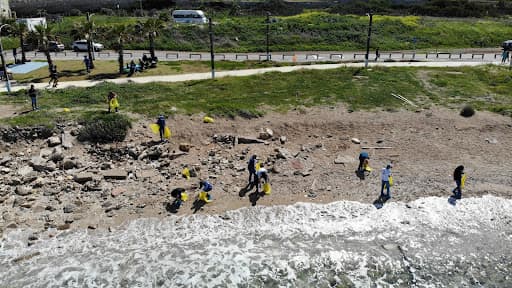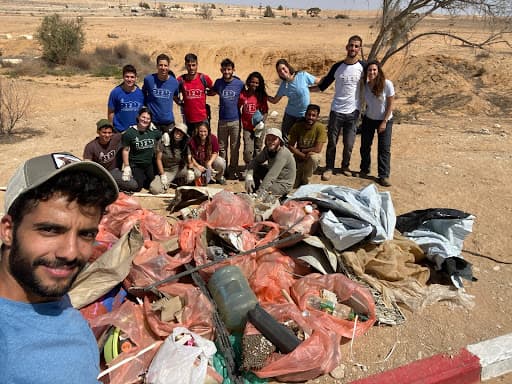Jun 21, 2022
How Automation Helps 100+ Communities in Israel Clean Up the Environment
Find out how grassroots organization Cleaning Our Home leveraged Make to automate its processes and double its reach in its environmental cleaning efforts.
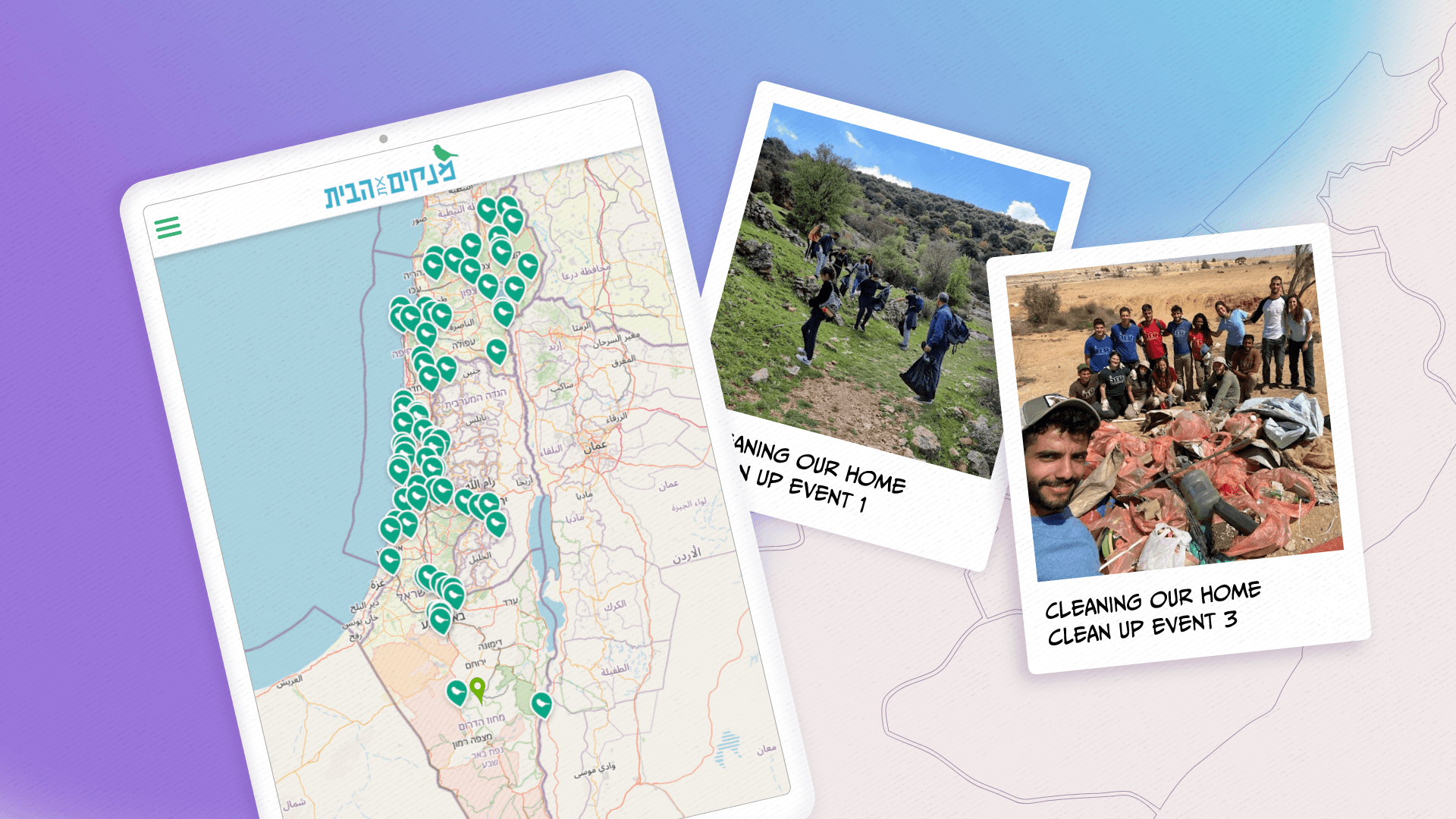
Littering not only wreaks havoc on the environment but it also costs billions of dollars to clean up. As a global issue, it desperately needs to be addressed with the same type of urgency that the world’s leaders apply to our economic problems.
In Israel, a non-profit grassroots initiative called Cleaning Our Home is spearheading this movement in their country. They’re working hard to bring as many communities as possible together to clean up their litter and show them the impact that they can make by never throwing a piece of trash in nature again.
Cleaning up Israel’s environment is a problem of epic proportions. And Cleaning Our Home soon realized that the only way to solve it is by thinking outside of the box and keeping up with the latest technology.
With the help of automation, they turned their process for coordinating clean ups into an automated, swift, and simple one.
Cleaning Our Home: Getting communities to treat nature and public spaces like their private homes
Cleaning Our Home has taken on the mission to help clean up Israel’s environment by bringing communities together to pick up trash from nature and public spaces.
To achieve this mission, they’ve created a platform where users can set up an annual “Cleaning Our Home” day at a polluted location and invite people to join them to help clean it up.
But Cleaning Our Home doesn’t just set up clean ups to pick up litter. They also do it to raise their participants’ awareness about how crucial it is to keep the environment clean.
“Beyond the cleanliness of the places themselves, we believe these activities can lower barriers between people and the garbage that they see around them,” says Dan Liebeschutz, the Founder of Cleaning Our Home, who also happens to be an automation expert. “We want people to treat nature and public places just like they treat their private homes.”
As an automation expert and an environmentalist, it might seem like Liebeschutz has to access one skill set for his day job and a completely different one for his night job. But that’s not the case for him because both roles are actually quite similar. They require a laser focus on the future and doing things to the best of your ability. And that’s exactly why Liebeschutz wanted to reassess Cleaning Our Home’s process for coordinating clean ups. It was outdated and, even worse, significantly slowing down the number of cleanups that they could coordinate.
Manually coordinating clean ups was limiting their impact
On Cleaning Our Home’s map, users can either join a location to clean up or open one themselves. Sounds simple, but things were not as easy on Cleaning Our Home’s end.
They had to manually refresh their map to see if new cleaning locations were opened, reach out to these users and their team’s Locations Leader, and move each project’s details from their database to their project management platform.
Since none of the tools that they used were communicating with each other, it took a total of two hours to set up each cleaning location.
“Soon enough, we realized that this process wasn’t an option for us anymore,” says Liebeschutz. “And considering this project’s scale, the use of automation was a no-brainer.”
Cleaning 100 communities in their first year and doubling their impact in the next
With Make, Cleaning Our Home built a scenario that could completely automate their process for coordinating each clean up.
“Make was a crucial tool that we used to scale our activity,” says Liebeschutz. “By connecting our Wix site, Monday boards, and our cleaning sites map, we were able to build a scalable workflow.”
And scale they did. Last year, 100 locations were opened on Cleaning Our Home’s map. And all of these were handled by the scenario that they built in Make.
Now, they can let automation handle the coordination of each clean up, allowing them to spend the majority of their time scaling their clean up efforts, educating the public on its importance, and ultimately saving Israel’s environment.
“We feel confident that we can open 200 cleaning spots this year because we know it won’t require any additional manpower,” says Liebeschutz. “Make enabled us to build a system that scales our impact, even though none of us are programmers. It’s been a complete game changer for us.”
Saving the environment one automation at a time
Like any other organization, Cleaning Our Home relies on processes to reach its goals. And when they are inefficient, they produce higher costs and limited impact.
Automation doesn't just save businesses time and money. It also empowers all kinds of organizations to make a real difference in the world.
In the case of Cleaning Our Home, it's helping save Israel's environment by cleaning up beaches, parks, and public areas. It's making the country more livable, its people happier, and also spreading awareness about the importance of environmentalism.
In the end, automation is all about possibility. Most of us can easily imagine a better world and trade ideas about the future, but it's with Make that we turn them into reality.
Ready to make the automation revolution happen?

Clifford Chi
Content marketing writer at Make. Passionate about storytelling and creativity in B2B marketing. In my free time, I love to surf, play guitar, and watch baseball.

